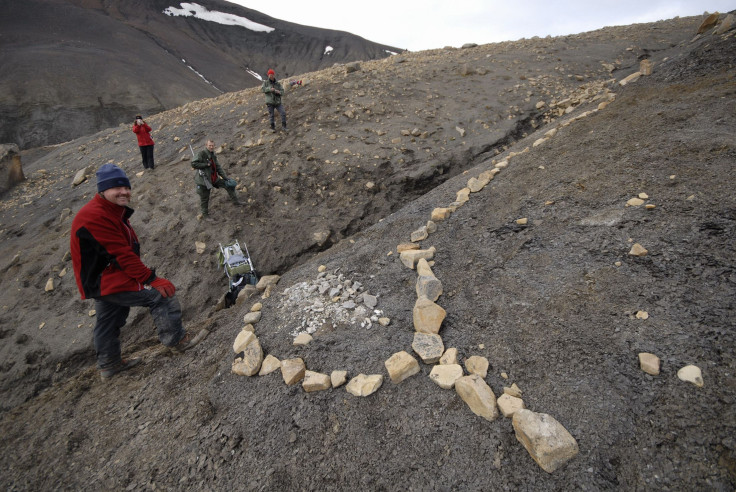'Very Important' Ichthyosaur Fossil Discovered On UK Beach

A 7-foot-long, fossilized skeleton of an extinct marine reptile has been discovered in the U.K. Jonathan Bow, a 34-year-old computer programmer, found what's believed to be an ichthyosaur fossil as he walked along Penarth Beach in South Wales with his brother, Wales Online reported Friday.
“Something this large and complete is a once in a lifetime find,” Bow, an amateur fossil hunter, said of the reptile remains.
The discovery is considered important because the skeleton is so large and intact, National Museum Wales paleontologists said, according to BBC News.
Paleontologist Cindy Howells, manager of the museum’s department of geology collections, told Wales Online that the discovery is a “potentially very, very important find.” She said fossilized pieces of ichthyosaurs have been discovered in Wales before, but not a full skeleton, though full skeletons have been found elsewhere.
Scientists believe ichthyosaurs -- essentially crosses between lizards and fish -- became extinct about 25 million years before all dinosaur species were wiped out in a massive event.
The ichthyosaur was a carnivorous reptile that swam in Earth’s oceans while land-based dinosaurs wandered its forests and plains, according to the University of California Museum of Paleontology. The shape of an ichthyosaur was similar to that of a modern-day tuna or mackerel, and they were fast-moving hunters.
Bow said he will add the skeleton to the personal collection of fossils he has discovered that he keeps in his home.
“This is not the rarest of my finds – that was a dinosaur toe bone, which I found five years ago. But this is the most complete. Other fossils from the Jurassic period have been unearthed in the area, dating back 200 million years,” he told Wales Online. “You can go for months without finding anything. Then on a weekend you can find something like this.”
© Copyright IBTimes 2025. All rights reserved.





















